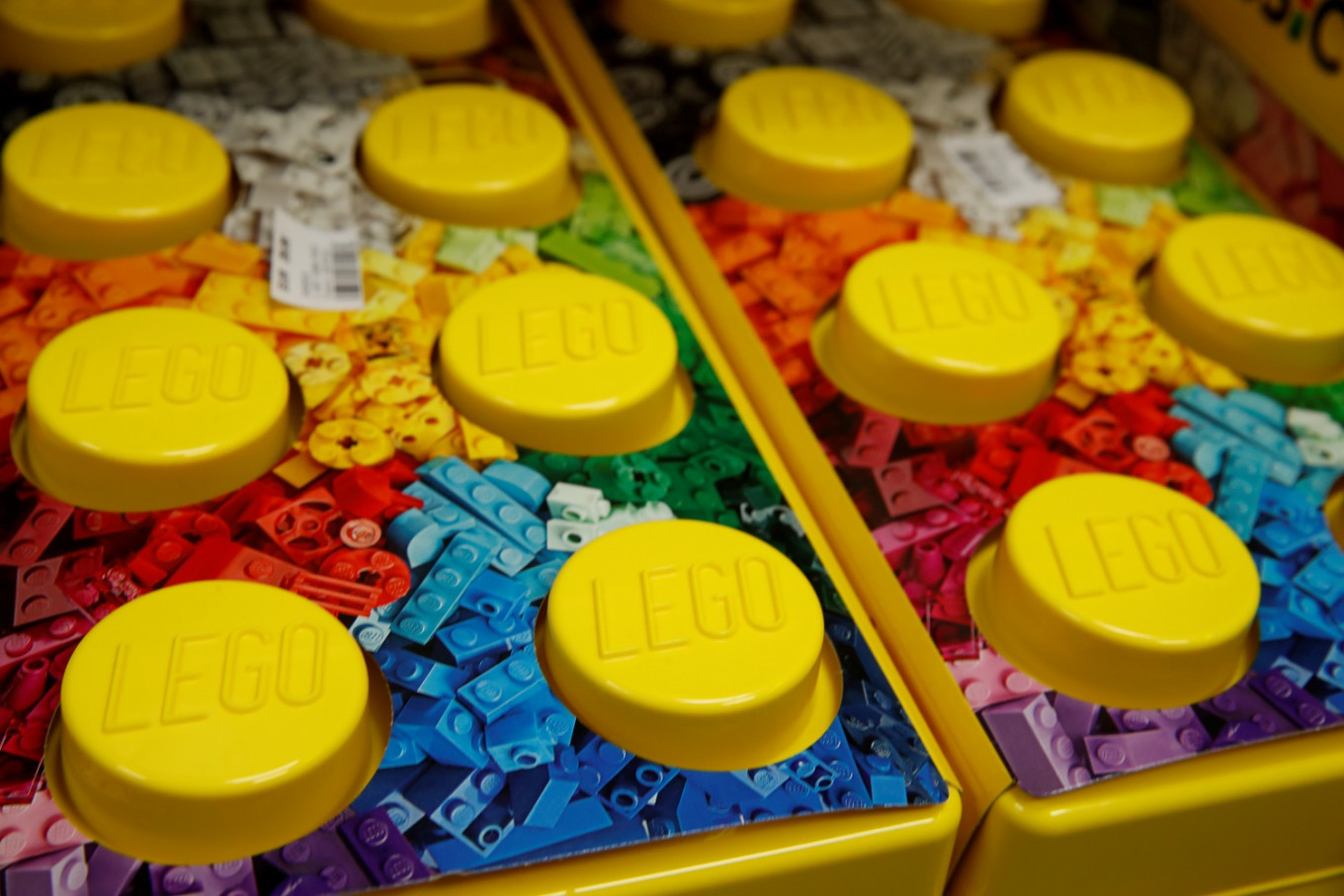Popular Reads
Top Results
Can't find what you're looking for?
View all search resultsPopular Reads
Top Results
Can't find what you're looking for?
View all search resultsLego to replace oil in its bricks with pricier renewable plastic
Lego, which sells billions of plastic bricks annually, has tested over 600 different materials to develop a new material that would completely replace its oil-based brick by 2030, but with limited success.
Change text size
Gift Premium Articles
to Anyone
T
oymaker Lego said on Wednesday it was on track to replace the fossil fuels used in making its signature bricks with more expensive renewable and recycled plastic by 2032 after signing deals with producers to secure long-term supply.
Lego, which sells billions of plastic bricks annually, has tested over 600 different materials to develop a new material that would completely replace its oil-based brick by 2030, but with limited success.
Now, Lego is aiming to gradually bring down the oil content in its bricks by paying up to 70 percent more for certified renewable resin, the raw plastic used to manufacture the bricks, in an attempt to encourage manufacturers to boost production.
"This means a significant increase in the cost of producing a Lego brick," CEO Niels Christiansen told Reuters.
He said the company is on track to ensure that more than half of the resin it needs in 2026 is certified according to the mass balance method, an auditable way to trace sustainable materials through the supply chain, up from 30 percent in the first half of 2024.
"With a family-owner committed to sustainability, it's a privilege that we can pay extra for the raw materials without having to charge customers extra," Christiansen said.
The move comes amid a surplus of cheap virgin plastic, driven by major oil companies' investments in petrochemicals. Plastics are projected to drive new oil demand in the next few decades.
Lego's suppliers are using bio-waste such as cooking oil or food industry waste fat as well as recycled materials to replace virgin fossil fuels in plastic production.
The market for recycled or renewable plastic is still in its infancy, partly because most available feedstock is used for subsidized biodiesel, which is mixed into transportation fuels.
According to Neste, the world's largest producer of renewable feedstocks, fossil-based plastic is about half or a third of the price of sustainable options.
"We sense more activity and willingness to invest in this now than we did just a year ago," said Christiansen. He declined to say which suppliers or give details about price or volumes.
Rival toymaker Hasbro has started including plant-based or recycled materials in some toys, but without setting firm targets on plastic use. Mattel plans to use only recycled, recyclable or bio-based plastics in all products by 2030.
Around 90 percent of all plastic is made from virgin fossil fuels, according to lobby group PlasticsEurope.











